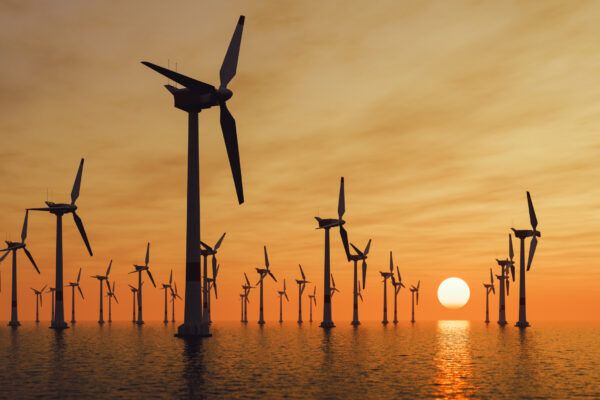The World Economic Forum’s annual meeting in Davos brought together leaders from government, business and civil society under the 2023 theme ‘cooperation in a fragmented world’. Against the backdrop of the war in Ukraine and the cost of living crisis, climate policy seems to be causing more competition than collaboration. But as always there are bright spots – where cooperation is leading to greater, ambitious and faster progress – and Davos brought three examples to the fore.
1. Businesses are joining forces to measure and reduce their impact on air pollution
Air pollution is a cross-cutting issue that intersects with climate, health and economy. The Alliance for Clean Air is the first global private sector initiative bringing together multinational business to improve air quality, including Google, Siemens, IKEA, GSK, Mahindra and Maersk. These multinational companies recognise that pushing for cleaner air saves lives and reduces illness, and that many air pollutants are produced alongside greenhouse gases, so clean air action is also climate action.
The alliance was launched by the World Economic Forum and founding members at COP27 in Glasgow just over a year ago. Since then, member companies have been using a first-of-its-kind guide to assess air pollution emissions across their value chains, and are now setting ambitious targets to reduce these. A wise move, when the Corporate Sustainability Reporting Directive (CSRD) means that reporting on pollutants will become mandatory in the EU in 2024. But if the climate, health and compliance benefits aren’t persuasive enough, the group also launched a practical business action toolkit to support companies to build a business case for clean air, which was produced by the World Economic Forum and Accenture.
2. Cooperation and activism leads to ambitious legislation
We need bold action to tackle the climate crisis, and it’s the combination of citizen activism and ambitious governments that lead to meaningful change at scale. In an Open Forum panel, when a fellow speaker expressed frustration with climate protests, Virginijus Sinkevicius, European Commissioner for Environment, Oceans and Fisheries, told the audience that there would be no European ‘Fit for 55’ climate package (which commits the EU to a 55% reduction in greenhouse gas emissions by 2030) without the Fridays for Future campaign.
Public advocacy creates the political will for stronger laws and the policy change that leads to the implementation of technical climate solutions. Citizens need to continue speaking out to influence governments and businesses to adopt ambitious goals – and for clean air right now that means vocally supporting the EU’s proposed new ambient air quality standards (or pushing for even more ambitious targets).
Citizens, scientists and policy makers are also working together in other settings. In a Davos panel on digital innovation, urban epidemiologist Prof Tolullah Oni talked about the need for capturing robust evidence that intersects with health and climate, and emphasised that if it is citizens, and not academics, that collect this data, the data will be more relevant and much more likely to be used. The UrbanBetter project is a collaborative learning and advocacy platform that gathers citizen-centred air pollution data in African cities using wearable sensors.
3. Philanthropy is a catalyst for public and private partnerships
The World Economic Forum is known for catalysing public-private partnerships, and now they’ve thrown a fourth P into the mix: philanthropy. Tackling the global climate crisis requires more money and a new approach to stimulating public and private financial flows. Philanthropic funding is uniquely placed to accelerate action as it is able to take greater risks, is innovative and is driven by long-term outcomes rather than short-term gains.
At Davos, the World Economic Forum launched Giving to Amplify Earth Action (GAEA), a global initiative to fund and grow new and existing public, private and philanthropic partnerships. It is hoped that the initiative will unlock $3 trillion of annual financing to reach net zero, reverse nature loss and restore biodiversity by 2050.
What now for the air quality movement?
Action on air pollution is growing momentum. The air quality community is working together more closely and more organisations across sectors are realising the transformative potential of clean air. But we urgently need to forge more links between these diverse actors to realise a healthier world for people and planet. At Clean Air Fund, we are here to help and collaborate.


